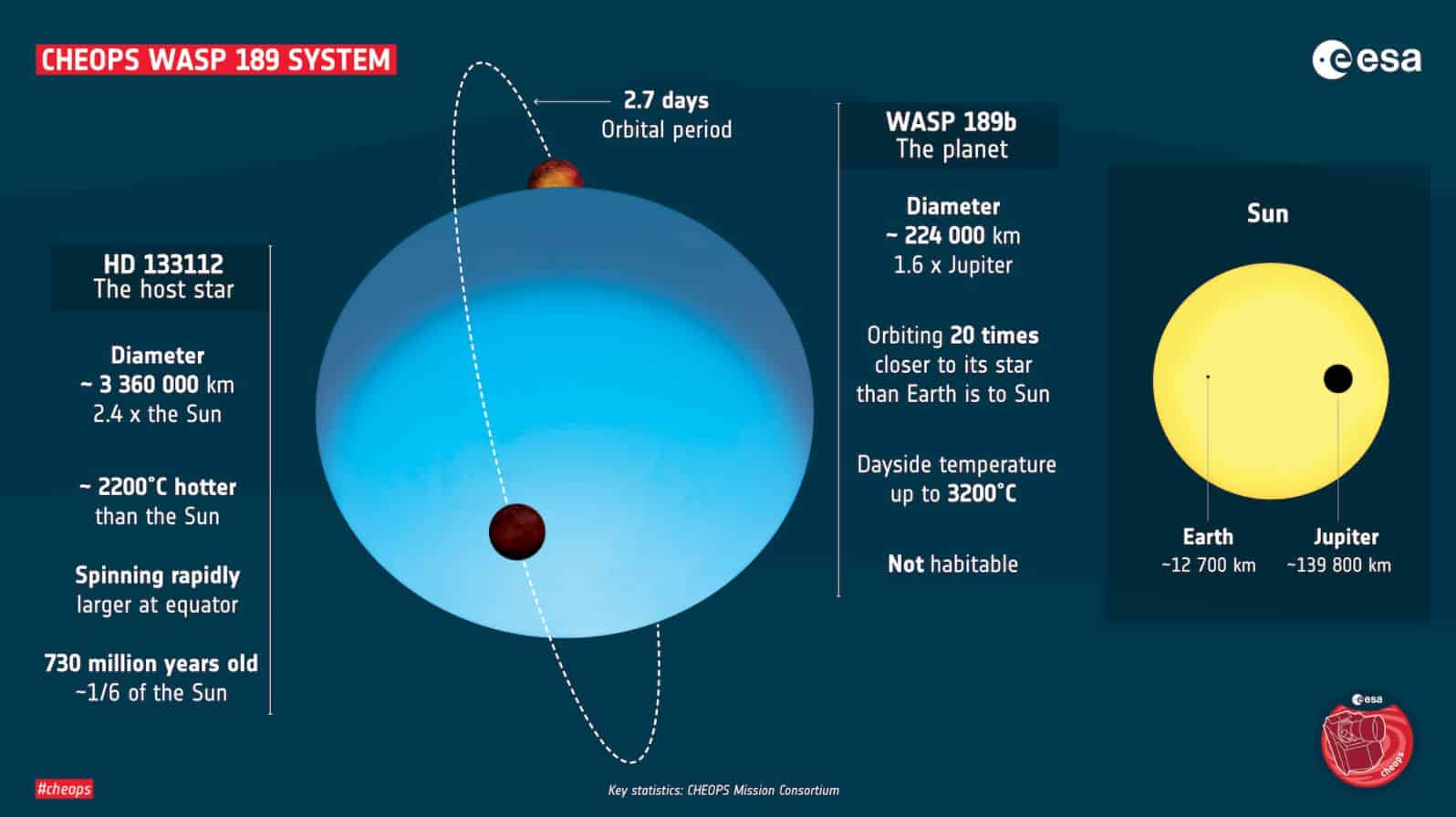Astronomers from the European Space Agency (ESA) have succeeded in finding a nearby planetary system that contains one of the hottest and most extreme extrasolar planets known.
With the help of the Cheops Space Observatory, scientists have managed to identify the hot Jupiter WASP-189 b, an exoplanet where temperatures can reach 3,200 degrees Celsius.
Hot Jupiter, ESA explained, are huge gaseous planets, similar to the fifth planet in our solar system. However, unlike Jupiter, they orbit much closer to their star, thus heating up to extreme temperatures.
In the case of WASP-189 b, its surface temperatures are sufficient to melt rocks and metals and even turn them into gases. The exoplanet is one of the hottest and most extreme ever discovered, unlike any of the planets in the solar system, ESA stressed.
Exciting news from our #exoplanet mission @ESA_CHEOPS ??? The first #science results are in! #Cheops has revealed one of the hottest and most extreme alien planets to date, an ‘ultra-hot Jupiter’?
Full story ?https://t.co/6YDc1AdQNu #exoplanets #explorefarther pic.twitter.com/g4YIelojAt— ESA Science (@esascience) September 28, 2020
WASP-189 b is 20 times closer to its star than Earth is to the Sun and makes a full orbit in just 2.7 days. In addition to being larger, its star is more than 2,000 ° C hotter than ours, so it appears to glow blue.
“Only a handful of planets are known to exist around stars this hot, and this system is by far the brightest,” explained Monika Lendl of the University of Geneva (Switzerland), lead author of the study.
The Cheops observatory allowed scientists to observe WASP-189 b pass behind its host star, a movement known as cloaking. This is how they managed to measure the brightness of the planet and determine its temperature.
Then, they observed the transit of the exoplanet, that is, its passage in front of its star. Transits can reveal details about the size, shape, and orbital characteristics of a planet. In the case of WASP-189 b, the scientists found that the exoplanet was larger than they expected: it has almost 1.6 times the radius of Jupiter.
The astronomers also managed to record some data about the star orbited by the exoplanet. It is not perfectly round, but larger and cooler at its equator than it is at the poles, which makes its poles appear brighter.
“It’s spinning around so fast that it’s being pulled outwards at its equator! Adding to this asymmetry is the fact that WASP-189 b’s orbit is inclined; it doesn’t travel around the equator, but passes close to the star’s poles,” Lendl detailed.
Its orbit sheds light on how hot Jupiters form. The extreme tilt of WASP-189 b’s orbit suggests that the planet formed farther from its star and was then pushed inward. This is believed to happen when multiple planets within a system dispute a position or when an outside influence, like another star, for example, disturbs the system. As a result, the planet is pushed towards its star and into very short and very inclined orbits.
In addition to the data provided by this research, it also shows that Cheops, launched in December 2019, operates as expected.
